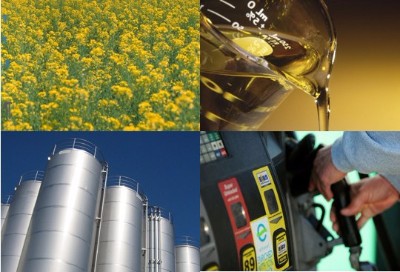
To access the News Reviews, subscribe to our Information Package free of charge here.
Foreword
Bioethanol is produced globally, as a
substitute for fossil fuels, in many countries, where ethanol is mandated for
blending in transport fuels to reduce CO2 emissions. The ethanol is primarily
produced using first generation feedstocks (1G) by fermentation of sugars from
crops such as sugar beet, sugar cane, wheat and corn.
In Germany, some politicians, including the Federal Minister for
Agriculture, are concerned about the use of biofuels from crops, with fears
that food security is undermined by using agricultural land to grow fuel
feedstocks. The German bioethanol industry (BDBe) has responded with the
assertion that bioethanol is produced...
Other news this month includes:
Policy
- UK Advanced Fuels Fund (AFF) competition winners
- UK Tech fund to decarbonise and innovate freight
Markets
- High feedstock and gas prices impact ethanol prospects
- Ørsted becomes full owner of Europe's largest e-methanol project, takes FID
- More...
Research and Development
- Effects of soybean varieties on life-cycle greenhouse gas emissions of biodiesel and renewable diesel
- Airbus tests renewable marine fuel
- More...
Bioethanol
- India ethanol industry praised for hitting blending targets early
- Versalis gains technology to produce cellulosic ethanol enzymes
- More...
Biodiesel
- Neste to acquire Crimson Renewable Energy UCO processor for biodiesel
- Cornish village tests HVO heating
- More...
Aviation and Shipping Biofuel
- RAF’s successful use of SAF in Typhoon and Hercules aircraft
- Fulcrum BioEnergy produces first low-carbon synthetic crude from landfill waste
- More...
Other Biofuels
- Hydrogen to be produced from green waste
- First commercial scale dynamic green ammonia plant in China
Price Information
Events